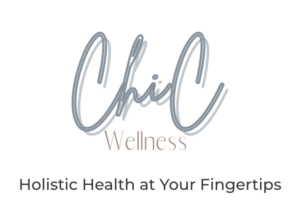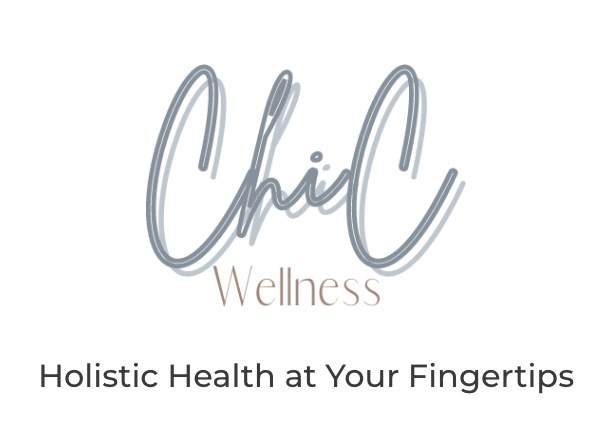It’s Time To Take Care of Every Women’s Health For The Sake Of Their Family and, Of Course, For Themselves
Women’s health month has come and gone, but taking care of ourselves is ongoing.
Learning to manage one’s life seasons is critical for self-care and mental wellness. Today, we’ll look at how diet may affect breast cancer, early motherhood, and menopause. We’ll also provide a list of Purium items that may be beneficial for ladies throughout various times in their life.
Without further ado, let’s get started!
Nutrition And Breast Cancer Prevention
Causes Of Breast Cancer

Breast cancer and its risk factors impact women of all ages, at all stages of life.
While the Centers for Disease Control and Prevention (CDC) shows that older women have a greater chance of developing breast cancer than those under 50, women of all ages should be cautious.
Aside from age, the following are some additional risk factors that women should know:
- Family History: According to Harvard Health, women who have two or more first-degree relatives (mothers, daughters, and sisters) with breast cancer may be more likely to acquire the disease themselves.
- Breast Density: Breast density may also have an impact, according to Harvard health researchers. The thicker the tissue on screens, the greater the chance of getting cancer.
- Chemical Exposure: I also thought of some chemicals in cosmetics and food to add to the risk. Although research is continuing, the Environmental Working Group and naturopaths advise against using items containing known toxins and carcinogens.
Diet And Breast Cancer Risk
Nutrition may have a significant impact in reducing and removing favorable variables. A good diet, according to the University of California, San Francisco, may help reduce the risk, development, and recurrence of the illness.
I list nutritional risk factors below.

- Obesity: Obese women (those with a BMI over 25) have a higher chance of having breast cancer than those with a lower BMI. While the precise reasons this may raise risk is complex, many think that extra fat cells create more estrogen in the body, which changes hormone receptors. The receptors, in principle, would foster cancer, enabling it to proliferate.
- Vitamin D deficiency: This is a relatively recent hypothesis, yet it is significant. According to a clinical study published in Breast Cancer: Basic and Clinical Research, vitamin D has a significant function in preventing the growth of breast cancer. As a result, a lack of this vitamin may put you in danger.
Melatonin, in particular, may influence the development of breast cancer. This time, however, we have good news. Melatonin is now being researched as a cancer prevention and treatment agent.
According to a paper published in the medical journal Oncotarget, the hormone’s antioxidant-boosting ability may aid in the prevention of tumor and cancer cell growth. Formalized, of course, additional research is required.
Nutrition– The Purium Way
The Co-Founder of Purium Dave Sandoval recommends core 4 Nutrition, for anybody searching for more energy, better sleep, and less stress. Coincidentally, this is also an excellent bundle for ladies!
Why is this so? Core 4 may enhance healthy living by providing pure, vegan protein and plant nutrients. The plant elements may assist promote healthy hormone balance, particularly melatonin, which may aid in a deeper sleep.
Nutrition And Safe Motherhood

While breast cancer prevention applies to all women, the next part may not apply to everyone. This is not a season of life that every woman goes through, but those who know how wonderful it can be.
We’re talking about one of the most difficult, but rewarding, occupations on the planet: motherhood. But we will not speak about kids today. (However, if you want to learn more about children’s health, go here.) Instead, we’ll discuss how parenting affects new mothers emotionally.
Postpartum Depression Causes
Postpartum depression exists, even though many individuals do not discuss it. For those who are unfamiliar, the Mayo Clinic characterizes this sort of mental health condition as long-term depressive symptoms after childbirth.
According to the Cleveland Clinic, around 15% of new moms experience this sort of depression following the birth of their child.
According to the National Institute of Health, postpartum depression risk factors may be both internal and external.
Here are a few examples:
- Previous mental health issues: Women who have been diagnosed with depression or other mental health problems may be at a higher risk of developing postpartum depression.
- Lack of Support: Women who do not feel supported by their spouse, family, or friends throughout their pregnancy are more likely to have mental health problems.

And what we can do to mitigate risk factors? Here’s what the latest study says.
- Breastfeeding: Breastfeeding your infant may help lessen the risk of postpartum depression, according to several research. According to one research published in The International Journal of Psychiatry in Medicine, there is a link between the two. They also imply that postpartum depression may reduce a woman’s chances of nursing her infant. However, further research is required to validate this notion.
- Strong support: Strong emotional support both during and after pregnancy may help reduce the incidence of postpartum depression. According to one analysis of the evidence published in the journal Archives of Women’s Mental Health, support from family, friends, or even a professional may assist new moms to avoid mental health concerns.
- Vaginal birth*: According to a new study, women who give birth vaginally have a lower chance of experiencing postpartum depression than those who had cesarean sections (C-sections). Formalized Researchers indicate that emotional wellness may have a role in one study published in the Iranian Journal of Nursing and Midwifery Research. In this research, women who gave birth “naturally” scored better on emotional tests than women who had a C-section.
*No woman should be criticized based on her choice of delivery method, whether vaginal or C-section (her body, her choice.) We are only sharing studies on postpartum depression.
You may wonder whether diet has anything to do with postpartum depression. Yes, it is true!
How Nutrition Affects Postpartum Depression

According to preliminary studies, what women consume may influence their risk of developing postpartum depression. According to a review of the literature published in the journal Nutrition Research Reviews, vitamins, minerals, and micronutrients may play a role.
This makes sense, since we often link our emotional health to our mental health. We can see examples of this when we are feeling down and aren’t properly nourished.
How Can Purium Nutrition Help
Dave Sandoval, The Co-Founder of Purium, suggests using Core 4. Plant components such as tart cherry and spirulina aid in new moms’ everyday nourishment. In addition, tart cherries may promote deeper sleep, which has been related to improved mood.
REFERENCE
Nutrition & Women’s Health: Breast Cancer, Early Motherhood and Menopause
About The Doc

My curiosity about life and longevity led me to Traditional Chinese Medicine school and later in life in becoming a Doctor of Chinese Medicine. As a licensed acupuncturist and herbalist, my work includes collaborating with people to resolve a wide range of health challenges including fibroids, emotional stress, adrenal fatigue, diabetes, thyroid imbalance, and fertility. My focus is to deepen my understanding of the way in which I relate to myself with others and the world. My exploration as an entrepreneur, community builder, traveler, and lifelong student has helped me cultivate my skills as a practitioner.
Using the art of Chinese Medicine as my tool, I gently guide, nudge, and aid one’s body and mind to find its own balance. From there the intelligence of the body knows what to do next. This is what the healing process has taught me. I see myself as the tuning fork for my clients.
I am here to hold space. My role is to aid you in your return to inner harmony, emotionally, physically, and spiritually well-being, in tune with our true nature so that we can realize our life’s passion without limitations.
Let’s journey together.
DISCLAIMER
This Information provided by AntonikaChanel LLC on Antonikachanel.com is for general informational purposes only. Everything material on the Site is supplied “entirely”. We make no representations or warranty of any sort, regarding the adequacy or completeness of the content. This website is under no responsibility for any loss or damage arising from the use of this site or reliance on any information provided on the site.


